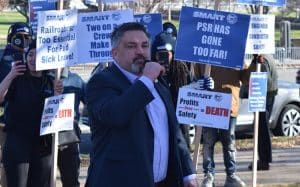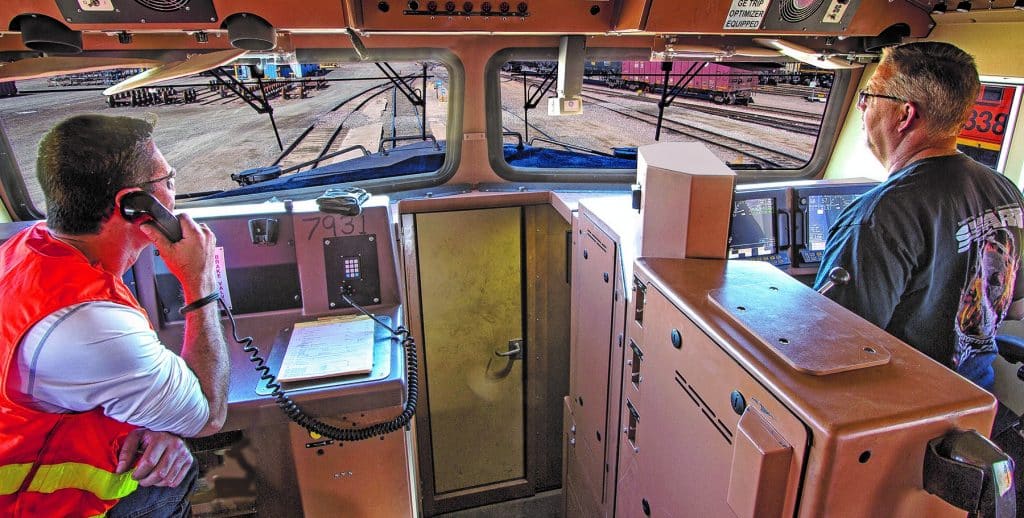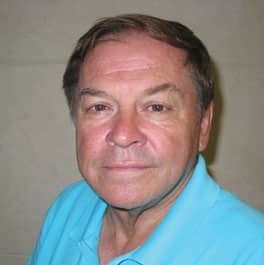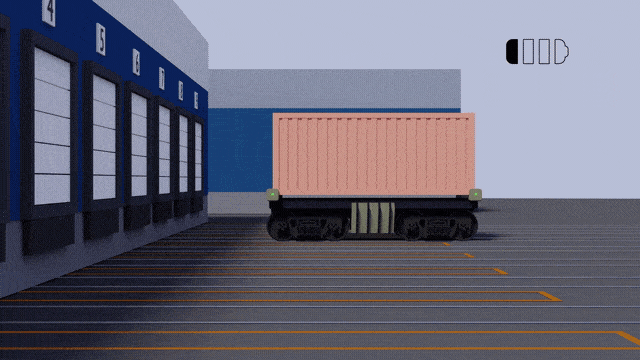The 2024 calendar lists Monday, April 22, as Earth Day, but with the groundbreaking ceremony in Las Vegas, Nevada, for what will become 218 miles of new high-speed rail line, SMART Transportation Division and the rest of rail labor can see today as Jobs Day!
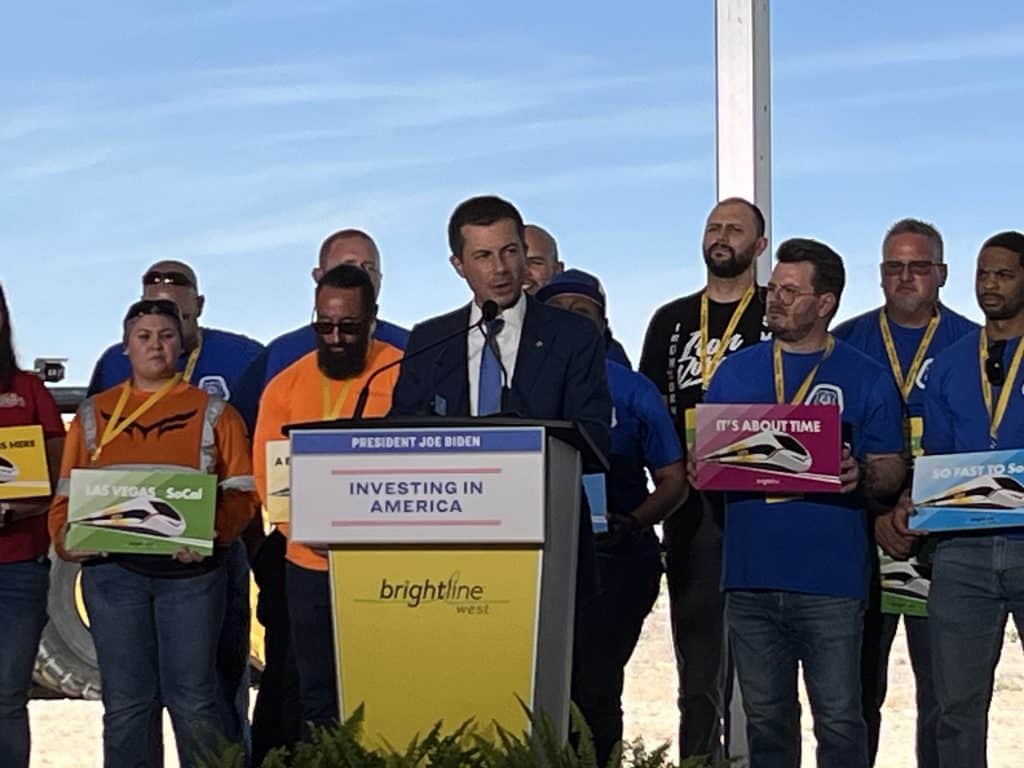
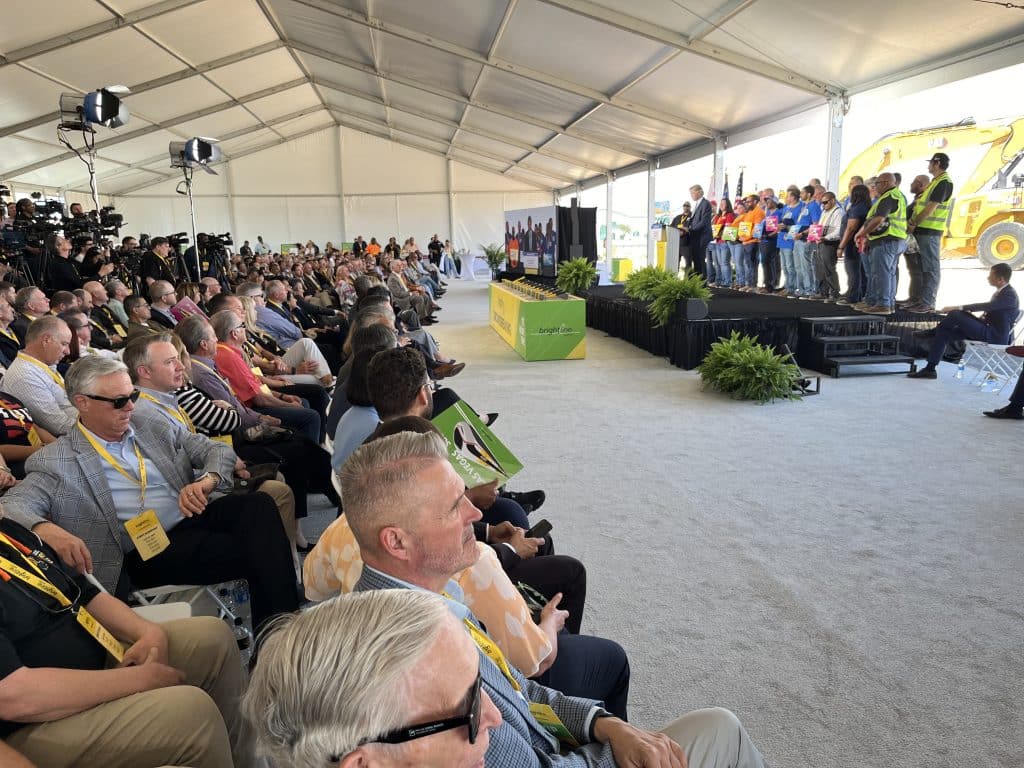
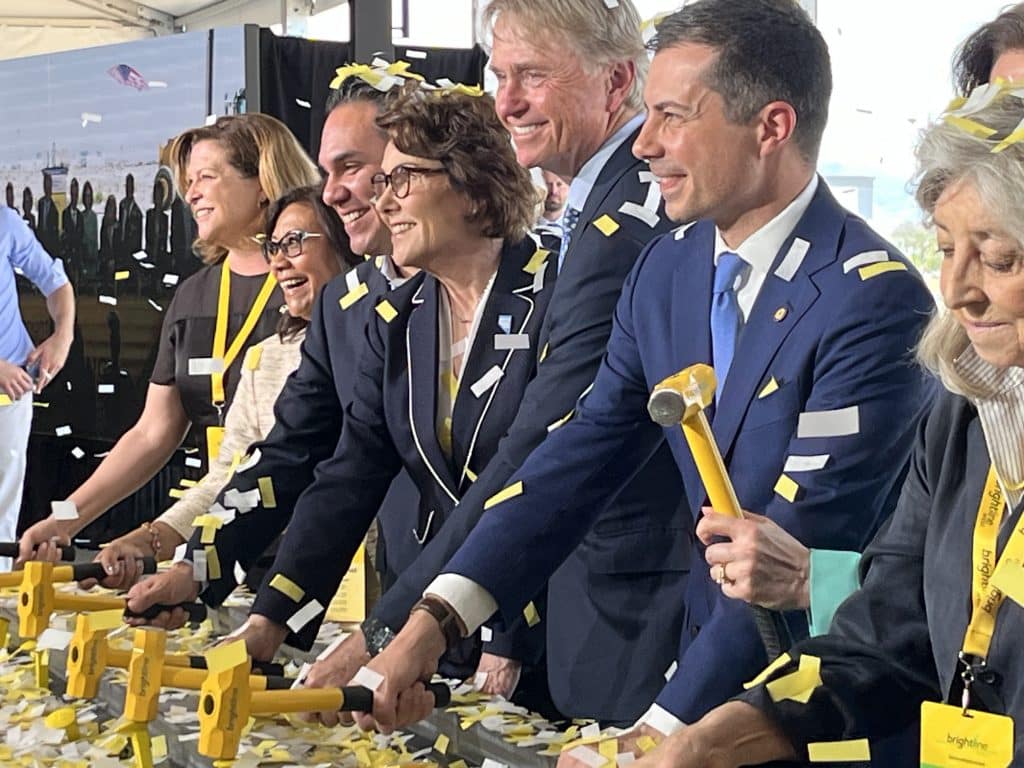
Brightline West broke ground on a state-of-the-art high-speed rail line today that will link Southern California with Las Vegas. The line will run from the southern end of the famous strip in Las Vegas and run to Rancho Cucamonga, California, just outside of Los Angeles.
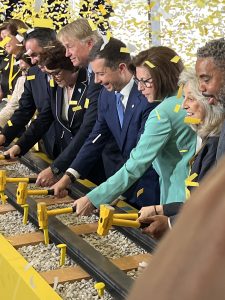
This rail line will run with a fleet of electric locomotives, so there are obvious benefits to the environment, but the most important thing for the SMART-TD is that Brightline West is partnering with our union to staff their trains. As of today, rail labor is getting an immediate shot in the arm by this project. Thousands of jobs in multiple crafts will be created by the building and maintaining of these lines.
The United States has long been the only industrialized country without viable high-speed rail service and the completion of Brightline West would end that.
A large portion of the funding for this project came from the Biden administration through the bipartisan infrastructure legislation commonly referred to as the Infrastructure Investment and Jobs Act.
As a stipulation of receiving the federal dollars, it was agreed that Brightline West would use an entirely union workforce to build the infrastructure and to staff the trains, putting other union brothers and sisters, as well as our members, to work. With trains planned to originate every 30 minutes in both directions, there will be a significant amount of SMART-TD jobs gained in this project.
SMART-TD’s National Legislative Director Greg Hynes and SMART Rail-Mechanical Department Director Peter Kennedy were at the groundbreaking ceremony today as was U.S. Department of Transportation Secretary Pete Buttigieg. This project is scheduled to be ready for passenger service in 2028. The trains will travel up to 200 miles per hour and will get people between Los Angeles and Las Vegas in about two hours — less than half the time it currently takes to drive between the two cities.
